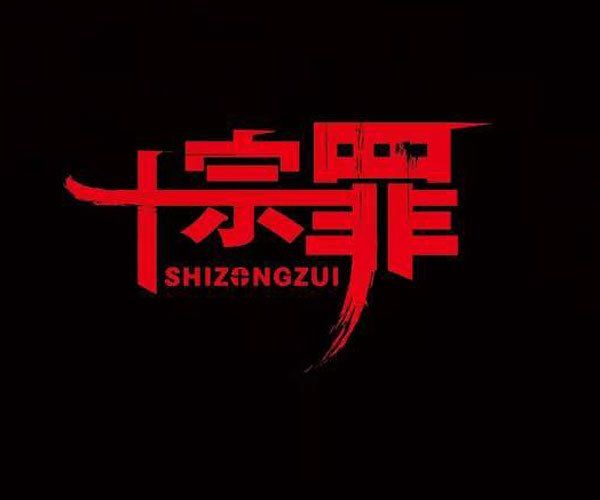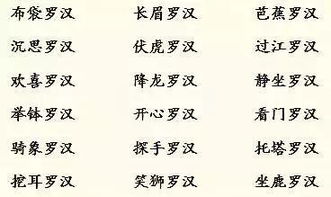信息來源:Paradigm 作者:Rodrigo Seira, Amy Aixi Zhang, Dan Robinson

制裁和審查對區塊鏈基礎設施的影響 1
執行摘要
2022年8月8日,美國財政部外國資產控制辦公室(OFAC)將與以太坊開源隱私協議Tornado Cash相關的某些以太坊地址添加到特別指定國民和被封鎖者名單(SDN名單)2。然而,我們認為,根據目前OFAC的指導,基礎設施參與者不需要作為基于風險的制裁合規計劃的一部分來監測或審查這些地址。
具體來說,雖然對去中心化區塊鏈系統和智能合約適用制裁法帶來了新的法律問題,但我們認為龍卷風現金制裁和迄今為止實施的區塊鏈地址制裁不應要求區塊鏈技術基礎設施供應商,包括建設者、資金池運營商、中繼器、搜索者、排序者和驗證者監測或審查涉及被封鎖地址的交易。
適用主要以金融和交易為導向的經濟制裁所引起的問題是,加密貨幣的區塊生產基礎層的行動(即使涉及受制裁的地址)是否相當于“促進”交易,或與任何受制裁方或受制裁方的“利益”打交道或“向其提供或...資金、貨物或服務”。
我們認為,在基礎設施層公開記錄數據塊的順序,并不比現有的通信基礎設施更 “促進”交易,或與受制裁方打交道,或向受制裁方捐款或提供服務,這些基礎設施每天在世界各地傳送金融信息,無論是通過互聯網服務提供商、路由器、網絡交換機、電子郵件和聊天程序、DDoS過濾器和其他網絡安全協議。在我們看來,加密貨幣的基礎層基礎設施已經通過將基本功能分配給獨立的參與者而實現了去中心化,這使得每個行為人的行為更不可能達到這個門檻。
此外,要求加密貨幣的基礎層在遵守制裁義務的威脅下對區塊進行監控或審查,可能會導致網絡重組和分叉5,威脅到生態系統的生存能力。傳統的通信和互聯網基礎設施也早已認識到類似的風險。其結果將損害國家安全利益,將區塊鏈技術的發展推向海外,并阻礙追蹤和跟蹤加密貨幣交易的努力,這一結果與外國資產管制處的既定目標6和拜登總統在3月發布的行政命令7相悖。
制裁是阻止敵對行為者的工具,而不是破壞技術基礎設施或公共產品。這對于加密貨幣和其他技術來說都是如此。例如,人們普遍認為,公共交換電話網絡和允許全球各地的電話進行通信的交換中心不應該過濾通信和排除受制裁者。同樣的說法也適用于互聯網的基礎設施,如傳輸控制協議/互聯網協議(TCP/IP)和互聯網服務提供商(ISP)。Crypto的基礎層也不例外。
我們希望本文的分析能夠緩解困擾行業參與者的不確定性,并明確制裁合規義務的范圍。8 我們首先描述了加密貨幣的基礎層及其參與者(第1節),然后討論了OFAC的法律授權(第2節)。然后我們討論了我們認為OFAC的合規義務至今沒有要求基礎層參與者監控或審查數據塊順序的公開記錄的原因(第3節),對基礎層參與者適用制裁合規義務的意外后果(第4節),以及美國監管機構對其他技術基礎設施的歷史處理(第5節)。
1. 加密貨幣的“基礎層”
區塊鏈可以被看作是一種時間戳服務,允許以規范的方式對數據進行排序。一個基本特征是,任何人都可以提交一大塊數據,以便在區塊鏈上打上時間戳和記錄。這可以支持像比特幣這樣的數字資產的分類賬,以及其他應用,包括消除對手方風險的無信任協議和社會協調的新機制。
像電話網絡一樣,加密貨幣的基礎層的核心是作為公共產品的通信協議和技術基礎設施。它的關鍵功能(公開記錄數據塊的順序)類似于我們期望互聯網基礎設施的基礎層所發揮的作用,即自由和準確地向公眾傳播信息。為了保持其效用,加密貨幣的基礎層也必須保持其中立性。
雖然區塊鏈的關鍵功能很簡單,但以分布式、可擴展和安全的方式提供它的基礎設施已變得越來越復雜,并隨著生態系統的發展和新技術的開發而不斷變化。許多區塊鏈已經將這一過程分布在具有專門角色的各種基礎層參與者之間,包括建設者、9資金池操作員、10中繼器、11搜索者、12排序者、13和驗證者14。
每個基礎層參與者在新區塊的排序和驗證中都扮演著特定的角色。但正如我們在下文中進一步解釋的那樣,我們認為這些基礎層參與者的行為不應該被解釋為與受制裁的人打交道,或為其提供交易便利。與互聯網協議等傳統基礎設施相比,區塊鏈通過將核心計算功能分配給扮演特定角色的行為人,進一步分散了核心計算功能。我們認為,與傳統的基礎設施相比,去中心化使得每個單獨的基礎層行為者的行為更不可能需要審查。
2.美國政府在數字資產領域執行制裁有合法的國家安全利益
制裁可以成為保護美國的一個重要工具。在應對諸如DPRK這樣的敵對行為者的威脅時,OFAC有一項重要的任務,即執行“基于美國外交政策和國家安全目標的經濟和貿易制裁”。
同時,外國資產管制處的權力不是無限的,執行合規計劃的標準是合理的“基于風險的方法”,而不是說只要有任何違反制裁的機會,就必須關閉所有的經濟活動。根據《國際緊急經濟權力法》(IEEPA)17和《國家緊急狀態法》(NEA)18賦予總統的權力,巴拉克-奧巴馬總統于2015年發布了第13694號行政命令(E.O. 13694)。19 E.O. 13694授權財政部處理危害美國或其盟國的惡意網絡活動。根據這一授權,外國資產管理處實施了與網絡有關的制裁計劃,根據該計劃,如果某些“人”或“實體”被認為是對美國國家安全或經濟構成重大威脅的外國網絡活動“負責或共謀”或“提供實質性協助”或“提供財政、物質或技術支助”,它可以將其列入SDN名單21。
一旦某方被確定列入SDN名單,“美國人”23 將被禁止與其進行“交易”,美國人 “擁有或控制”的被制裁方的所有財產和財產利益,或受美國管轄的財產,不得由美國人“轉讓、支付、出口、撤回或以其他方式處理”。
外國資產管制處在數字資產領域有執行制裁的歷史。2018年11月,OFAC首次對區塊鏈地址進行制裁,當時OFAC將伊朗國民控制的幾個比特幣地址列入SDN名單。26 OFAC最近還制裁了Blender.io,這是一個由幾個可識別的行為者運行和控制的集中式保管加密貨幣混合服務。
然而,外國資產管制處在8月份突破性地將Tornado Cash字節碼或智能合約(Tornado Cash協議的一個特定的、廣泛使用的副本)存儲在以太坊上的以太坊地址添加到SDN名單中。
由于第13694號行政命令允許財政部只對“個人”或“實體”的財產和財產利益采取行動,30 外國資產管制處對智能合約(其核心是幾行字節碼)的行動受到了法律分析家的質疑,并成為最近一場訴訟的主題。
3. 制裁法不應該要求加密貨幣基礎層的參與者對數據塊順序的公開記錄進行審查。
在這一節中,我們分析了直接制裁責任的兩個潛在來源:(a)對受美國管轄的人進行交易或為交易提供便利,或與SDN名單上的受制裁方進行交易的執法行動;(b)可能對SDN名單本身進行補充。我們的結論是,根據目前OFAC的指導,基于風險的制裁合規計劃不要求加密貨幣的基礎層監測或審查可能包括受制裁地址的數據塊。32
3a.加密貨幣的基礎層不應該因為公開記錄涉及受制裁地址的數據塊的順序而成為執法行動的對象。
當外國資產管制處將某一方列入特別敏感名單時,該受制裁方在美國境內或由 “美國人”“擁有”或“控制”的任何財產或財產利益必須被“封鎖”,不得“轉讓、支付、出口、撤回或以其他方式交易”。 33 《經濟、社會、文化權利國際公約》規定,違反這些禁令以及“導致”他人這樣做是非法的。
在此背景下,外國資產管制處的立場是,禁止為違反制裁提供“便利”。35 這包括“向財產和財產利益被封鎖的任何人提供任何捐助或提供資金、貨物或服務,或為其提供利益。”36 外國資產管制處對這些禁令進行了廣泛解讀,包括美國人在直接或間接涉及受制裁國家或當事方的交易中“協助”或“支持”非美國人的情況。
盡管外國資產管制處有廣泛的權力,但我們認為加密貨幣基礎層的參與者不需要監測或審查可能包括受制裁地址的數據塊,作為其基于風險的合規計劃的一部分。38 這些術語在外國資產管制處的實施條例或執法行動中沒有定義,因此應根據其普通含義進行解釋,要求“在自己的權力范圍內持有財產”或有權“治理”或 “管理”該財產,39 但基礎層參與者對數字資產缺乏這種影響或權力。
Crypto的基礎層參與者也不能“封鎖”被制裁方的財產或財產利益。某些參與者可以被迫審查區塊并不意味著他們有能力限制基礎財產。適用于加密貨幣基礎層的審查制度相當于無法報告交易;而不是“阻止”交易的能力。一筆交易是否被確認將取決于更廣泛的全球網絡共識,而與任何個別參與者的行為無關。例如,被一個基礎層參與者屏蔽的交易可能被世界上任何地方的非審查參與者撿到,或導致網絡分叉,如下文進一步討論。
任何個人基礎層參與者也不會通過發揮他們在數據塊順序的公開記錄中的作用來轉移被封鎖的財產,即使涉及被制裁的地址。正如外國資產管制處的實施條例所澄清的,禁止“轉移”被禁財產40的目的是為了捕捉轉移或改變財產的合法權利的行為,歷史上并不包括技術基礎設施(如電話網絡)的運作。41 雖然加密貨幣基礎層的某些參與者,如礦工,因其行為而從用戶那里獲得費用,這些費用類似于互聯網網絡費或電話服務費。
我們還認為,將加密貨幣基礎層參與者的行為解釋為處理被封鎖的財產,為其轉移提供便利,或為被制裁方提供服務,與外國資產管制處先前的法規和執法歷史不符。外國資產管制處的法規指出,“便利”不包括純粹的文書或報告性質的活動,也不促進貿易或金融交易。42 加密貨幣基礎層的核心功能——公開和分散地記錄數據塊的順序——應得到同樣的對待。此外,據我們所知,外國資產管制處通常會在主體同時負責其他應受譴責的行為(如利用金融機構作為代理人)時,提起包括便利索賠的執法行動43。
由于這些原因,我們認為基礎層參與者不需要作為基于風險的制裁合規政策的一部分來監測或審查涉及受制裁地址的數據塊,也不應該因為沒有這樣做而成為制裁執法行動的對象。44 外國資產管理處指出,“沒有任何單一的合規計劃或解決方案適合每一種情況或業務......并且虛擬貨幣行業成員的適當合規解決方案將取決于各種因素,包括所涉及的業務類型、其規模和復雜性、提供的產品和服務、客戶和交易方以及服務的地理位置。 ”45 鑒于基礎層參與者發揮的業務作用,在大多數情況下不涉及與客戶或交易方的接觸,我們認為,適當的基于風險的合規計劃不需要監測或審查涉及受制裁地址的數據塊。
雖然金融犯罪執法網絡(FinCEN)47 的指導意見對 OFAC 沒有約束力,但這一觀點得到了 FinCEN 的支持,FinCEN 認為比特幣礦工不是貨幣服務企業,“因為這些活動既不涉及可兌換虛擬貨幣的接受,也不涉及傳輸,而且不是資金傳輸”,48 FinCEN 認為 “如果一個人只是:a)提供貨幣傳輸者用于支持貨幣傳輸服務的交付、通信或網絡接入服務,那么他就不是一個貨幣傳輸者。”49 事實上,FinCEN已經適當地認識到,礦工的職能是 “驗證交易塊的真實性”,而不是執行交易。
3b. Crypto的基礎層活動不符合被列入SDN名單的標準
加密貨幣的基礎層運營商不應因為未能審查包括受制裁地址的數據塊而被列入SDN名單。外國資產管制處將基礎層參與者列入SDN名單,需要發現他們是“實質性協助”或提供財政、物質或技術支持給任何從事受制裁網絡活動的人的個人 或 實體。
這樣的結論不太可能,因為首先,許多基礎層活動不是由“個人”或“實體”進行的,而是由自我執行的軟件代碼進行的。在這些情況下,由于沒有“人”或“實體 ”采取任何行動,所以沒有依據來指定它們。
正如最近的例子所示,52 當外國資產管制處歷史上根據各種行政命令的 “物質支持 ”條款指認當事方時,它指認的是采取極端行動的惡意行為者,如向被指認的當事方提供敏感技術或暗中代表他們輸送資金。因此,基礎層的活動與OFAC之前認定的足以構成物質支持的行為在本質上是不同的。
3c.加密貨幣的基礎層運營商正在進行信息交易,根據IEEPA,這不屬于OFAC的管轄范圍。
對IEEPA適用于信息的進口或出口也有法定限制,這表明加密貨幣基礎層的活動不在制裁制度的范圍內。第13694號行政命令和大部分現代制裁措施是根據IEEPA頒布的,這是一部20世紀70年代的聯邦法律,在發生國家緊急情況時授予總統權力。
然而,IEEPA在幾個關鍵方面受到限制,包括對“信息”的出口。1988 年和 1994 年,美國國會通過了一系列對總統權力的限制,稱為“伯爾曼修正案”,這些修正案共同規定,外國資產管制處不能管制“從任何國家進口或向任何國家出口......任何信息或信息材料。”54 這一權力限制“無論其形式或傳播媒介如何”。
雖然外國資產管理處試圖縮小國會規定的豁免范圍,56 但美國法院最近的裁決表明,外國資產管理處對伯爾曼修正案的狹義解讀并沒有得到法規文本的支持。57 因此,結合上述觀點,可以進一步認為,加密技術基礎層的工作只是在處理信息(即使這些信息具有價值)因此可以豁免于美國根據《國際緊急狀態法》頒布的制裁。
4. 在基礎層施加制裁遵守義務的結果
在這一節中,我們將討論在遵守制裁義務的威脅下,強迫底層參與者監控和篩選數據塊所帶來的破壞性和反作用。
基層參與者篩選涉及受制裁地址的數據塊所導致的網絡審查程度將取決于本文范圍之外的重要技術細微差別。58 盡管如此,放棄區塊鏈核心操作特征的中立性有可能破壞區塊鏈的關鍵共識機制。
例如,如果某些審查驗證者采取的立場是拒絕驗證包含受制裁地址的交易的先前區塊,那么網絡可能會分叉。審查驗證者將與非審查驗證者意見相左,否認有受制裁地址的交易存在,網絡將分裂成兩個相互沖突的現實。另外,如果用戶不同意大多數驗證者審查交易的決定,用戶可以通過選擇不使用這些驗證者來“分叉”。無論其原因是什么,網絡分叉將是高度破壞性的,并破壞區塊鏈技術的基本主張,即提供數據塊順序的普遍記錄。
這種由制裁驅動的網絡分裂將最終損害美國的國家安全利益。對制裁執行的恐懼可能會導致驗證者和礦工等基礎層參與者走向海外。這將限制美國對技術發展的影響,并對美國經濟和美國的霸權產生負面影響。這些后果與拜登總統的目標背道而馳,他在3月份的行政命令中指出,“美國有興趣確保其在負責任地開發和設計數字資產以及支撐國際金融體系中新形式的支付和資本流動的技術方面保持領先地位”。
此外,這種反應將增加監控基礎層參與者的難度,包括那些作為上線和下線的參與者。隨著更多的活動轉移到境外,監管機構對交易所和驗證人的能見度會越來越低,因為他們的報告義務會越來越少,這使得美國監管機構更難跟蹤和追查非法資金。這些服務將被驅趕到其他司法管轄區,或被可能與美國及其盟友的國家安全利益對立的各方所捕獲。
事實上,美國在這里開創的先例很可能會被其他國家效仿,包括那些與我們的價值觀不同的國家。如果美國對基礎層實行審查制度,其他國家也可能選擇這樣做。這可能導致外國法律對美國的加密貨幣進行審查,或者,每個國家都有自己的“合規”加密貨幣版本,由該國的驗證者操作,與其他國家的版本完全隔離。目前的互聯網避免了這種命運,除了有限的例外情況,對我們所有人都有好處。
5. 保持技術基礎設施的中立性的重要性已被廣泛認可
對加密的基礎層的一個明顯的比喻是互聯網的基礎結構。60 正如基礎層的中立性對密碼的有效運作是必要的一樣,61 在通信網絡的底層允許不受審查的信息流動是至關重要的。
從架構的角度來看,網絡受益于將自由裁量權推向邊緣并保持核心部分不受審查,這樣信息就可以自由流動。因此,維護網絡的完整性是抵制通過管轄政策決定來分裂全球通信的另一個原因,即使某些問題如制裁朝鮮有強烈的共識。在互聯網信息傳遞今天的運作方式中,已經做出了政策決定,允許平衡網絡完整性和國家利益。相比之下,通過“數據包過濾”等行動進行的互聯網審查與壓迫性和獨裁政權有關。62 對于區塊鏈基礎設施,還有其他地方更適合裁定交易。美國監管機構的做法應該是一致的,并認識到保持加密貨幣基礎層的中立性是最重要的。
6. 結語
OFAC將區塊鏈地址確定為SDN名單,不應要求任何基礎層參與者審查涉及被制裁地址的交易。外國資產管制處的法規要求實施基于風險的合規計劃,以適應有關基礎層參與者的具體活動。鑒于加密貨幣的基礎層的作用從根本上說是公開記錄數據塊的順序,不應要求參與者篩選包括受制裁地址的數據塊。
在基礎層適用制裁合規義務,也會對國家安全產生適得其反的影響,并將重要技術的開發推向海外,從而使保護國家利益的核心部分——加密貨幣交易更難跟蹤和追查。
加密貨幣為美國和世界帶來了巨大的希望。隨著時間的推移,我們相信行業和監管機構可以通過合作,實現美國的言論自由、隱私和金融自由等理想。
鳴謝
特別感謝Angela Angelovska-Wilson, Katie Biber, Henley Hopkinson, Linda Jeng, Emily Meyers, Michael Mosier, Georgia Quinn, Rebecca Rettig, Gabriel Shapiro, Justin Slaughter和Sheila Warren的審查和反饋。
披露
本內容僅用于提供信息,不應作為法律、商業、投資或稅務建議來依賴。情況各不相同,人們應該咨詢他們自己的顧問和律師的意見。此處包含的某些信息是從第三方來源獲得的。雖然取自被認為是可靠的來源,但作者沒有獨立核實這些信息,也不對信息的當前或持久的準確性或其對特定情況的適當性作出陳述。對任何證券或數字資產的提及僅用于說明目的,并不構成投資建議或提供投資咨詢服務的提議。
腳注
- A position paper drafted by the Crypto Council for Innovation (CCI) and Paradigm. This paper should not be relied on as legal advice. ?
- This action prohibited any U.S. person without a license from sending to, or receiving crypto from, the listed addresses, including the addresses where the Tornado Cash bytecode or smart contract (a specific, widely-used program that implements the Tornado Cash protocol) is stored on Ethereum. ?
- “Censoring” by a base layer participant would entail either excluding any transactions that involve sanctioned addresses in blocks they propose, or refusing to attest to any blocks that include such transactions. ?
- To be clear, our analysis solely addresses the infrastructure layer composed of the blockchain network that underlies on-chain transactions. ?
- A “fork” occurs when the community of a particular blockchain’s protocol makes changes to the basic set of rules, such that the chain splits. This creates a new version of the blockchain that shares history with the original, but additional blocks are no longer backward-compatible with earlier rules. ?
- OFAC, “Sanctions Programs and Information,” available here (noting OFAC administers sanctions “based on US foreign policy and national security goals”). ?
- Executive Order 14067, 87 Fed. Reg. 40881 (2022), available here. ?
- This paper is limited to analysis of U.S. sanctions laws. It does not address the applicability of other statutes, such as 18 U.S.C. §§ 1956, 1957, to base layer activities. ?
- Builders construct full blocks and send them (or their headers) to validators. ?
- Mining pool operators collect transactions into blocks and distribute the block headers to miners. Miners on some chains, including Bitcoin, typically do not choose what transactions they mine, and only see the block headers, not the individual transactions. See, e.g., Gert-Jaap Glasbergen, “Who is Monitoring Mining Pools?” (Aug. 21, 2020), available here. ?
- Relays collect bundles from searchers or builders and send them to builders or validators. ?
- Searchers collect transactions and bundle them together to submit to builders or relays. ?
- Sequencers act like builders for “rollups,” which are blockchains that are built on top of another blockchain. ?
- Validators include miners in proof-of-work blockchains and stakers in proof-of-stake blockchains. ?
- OFAC, “Sanctions Programs and Information,” (last visited Sept. 7, 2022), available here. ?
- See, e.g., Department of the Treasury, “A Framework for OFAC Compliance Commitments,” available here, and OFAC, “Sanctions Compliance Guidance for the Virtual Currency Industry,” (Oct. 2021), available here. ?
- 50 U.S.C. § 1701 et seq. ?
- 50 U.S.C. § 1601 et seq. ?
- Executive Order 13694, 80 Fed. Reg. 18077 (2015), available here. ?
- See Executive Order 13757, 82 Fed. Reg. 1 (2017), amending E.O. 13694, available here. ?
- E.O. 13694 specifically defines these terms: “the term ‘person’ means an individual or entity…the term ‘entity’ means a partnership, association, trust, joint venture, corporation, group, subgroup, or other organization.” See § 6(a)-(b). ?
- Id., § 1(a)(ii)(A). ?
- A U.S. person is generally defined as “any United States citizen, permanent resident alien, entity organized under the laws of the United States or any jurisdiction within the United States (including foreign branches), or any person in the United States.” See, e.g., 31 C.F.R. § 560.314. ?
- E.O. 13694 § 1(a). ?
- Executive Order 13694, 80 Fed. Reg. 18077 (2015), available here, as incorporated in Executive Order 13757, 82 Fed. Reg. 1 (2017) amending the E.O., available here. See also, Stefan Reisinger, The Facilitation Prohibition (Dec. 2013), available here. ?
- U.S. Department of Treasury, “Treasury Designates Iran-Based Financial Facilitators of Malicious Cyber Activity and for the First Time Identifies Associated Digital Currency Addresses,” (Nov. 28, 2018), available here. ?
- U.S. Department of the Treasury, “U.S. Treasury Issues First-Ever Sanctions on a Virtual Currency Mixer, Targets DPRK Cyber Threats,” (May 6, 2022), available here. ?
- U.S. Department of the Treasury, “Cyber-related Designation: Specially Designated Nationals List Update,” (Aug. 8, 2022), available here (listing website, ETH addresses, including smart contract addresses, USDC addresses and “Organization Established Date 2019,” although no information was provided as to “what” the organization is). ?
- See, e.g., U.S. Department of Treasury, “Treasury Designates Iran-Based Financial Facilitators of Malicious Cyber Activity and for the First Time Identifies Associated Digital Currency Addresses,” (Nov. 28, 2018), available here; U.S. Department of Treasury, “Cyber-related Designations and Designations Updates,” (Nov. 8, 2021), available here (designating individuals and associated virtual currency addresses). ?
- E.O. 13694, as amended. ?
- Coin Center, “Analysis: What is and what is not a sanctionable entity in the Tornado Cash case,” (Aug. 15, 2022), available here. On September 8, a group of plaintiffs filed a federal complaint against OFAC in the Western District of Texas, challenging the sanctions of the Tornado Cash smart contracts and asking the Court to remove them from the sanctions list. In a blog post announcing Coinbase’s funding of the litigation, Coinbase CEO Brian Armstrong wrote, “Sanctioning open source software is like permanently shutting down a highway because robbers used it to flee a crime scene.” Coinbase, “Defending Privacy in Crypto,” (Sept. 8, 2022), available here. ?
- This paper is limited to U.S. sanctions laws. It does not address the applicability of other statutes, such as 18 U.S.C. §§ 1956, 1957, to base layer activities. ?
- E.O., § 1(a). ?
- 50 U.S.C. § 1705(a). ?
- See, e.g., U.S. Department of the Treasury, “A Framework for Compliance Commitments at 9-10,” (May 2, 2019), available here (identifying a common root cause of sanctions violations as “Facilitating Transactions by Non-U.S. Persons”). See also, 31 C.F.R. § 578, effective as of Sept. 6, 2022. U.S. Department of the Treasury, “Amendment to the Cyber-Related Sanctions Regulations and Associated Administrative List Updates,” (Sep. 2, 2022), available here. ?
- Executive Order 13694, 80 Fed. Reg. 18077 (2015), available here. See also Executive Order 13757, 82 Fed. Reg. 1 (2017) amending E.O. 13694, available here. ?
- See, e.g., Stefan Reisinger, “The Facilitation Prohibition,” (Dec. 2013), available here. ?
- E.O. 13694, § 1(a). ?
- “Possession” means “1. The fact of having or holding property in one’s power; the exercise of dominion over property. 2. The right under which one may exercise control over something to the exclusion of all others; the continuing exercise of a claim to the exclusive use of a material object.” POSSESSION, Black’s Law Dictionary (11th ed. 2019); see also Merriam-Webster Dictionary (“control of the ball or puck”), available here. “Control” means “[t]he direct or indirect power to govern the management and policies of a person or entity, whether through ownership of voting securities, by contract, or otherwise; the power or authority to manage, direct, or oversee .” CONTROL, Black’s Law Dictionary (11th ed. 2019). In the context of traditional banking transactions, OFAC has explained that banks, for instance, are required to block an “opening deposit” from an SDN or a request from a customer to send money to a relative on the SDN list. U.S. Department of Treasury, “Frequently Asked Questions No. 42,” (Aug. 11, 2020), available here. In other words, “[y]ou might think of the analogy of a bouncing ball,” and “[o]nce the ball starts moving, you must stop it if it comes into your possession.” Id. ?
- “The term ‘transfer’ means any actual or purported act or transaction, whether or not evidenced by writing, and whether or not done or performed within the United States, the purpose, intent, or effect of which is to create, surrender, release, convey, transfer, or alter, directly or indirectly, any right, remedy, power, privilege, or interest with respect to any property.” 31 C.F.R. § 578.316. ?
- While OFAC has brought enforcement actions against companies that provided technology services to sanctioned parties, the penalized actions amounted to direct assistance to sanctioned parties as opposed to enabling the fundamental operation of a network. See, e.g., OFAC, “OFAC Settles with SAP SE for Its Potential Civil Liability for Apparent Violations of the Iranian Transactions and Sanctions Regulations,” (April 29, 2021), available here (noting that “violations arose from SAP’s exportation of software and related services from the United States to companies in third countries with knowledge or reason to know the software or services were intended specifically for Iran”) and OFAC, “Enforcement Action against Société Internationale de Télécommunications Aéronautiques SCRL,” (Feb. 26, 2020), available here (noting that SITA knowingly provided commercial services and software that benefitted specially designated global terrorists). ?
- 31 C.F.R. § 538.407(a). We note that the Sudan sanctions are no longer in effect. ?
- See, e.g., OFAC, Enforcement Release - Sojitz (Hong Kong) Limited (Jan. 11, 2022) (finding Sojitz HK caused “multiple U.S. financial institutions to (i) engage in unauthorized financial transactions related to goods of Iranian origin in violation of § 560.206 of the ITSR and (ii) facilitate Sojitz HK’s Iran-related financial transactions that would have been prohibited if performed by a U.S. person in violation of § 560.208 of the ITSR”), available here; and OFAC, Enforcement Release - PT Bukit Muria Jaya (Jan. 14, 2021) (finding PT BMJ “caused U.S. banks to: (i) deal in the property or interests in property of a Specially Designated National or Blocked Person; (ii) export financial services to the DPRK; or (iii) otherwise facilitate export transactions that would have been prohibited if engaged in by U.S. persons in apparent violation of §§ 510.201, 510.206, and 510.211 of the NKSR”), available here. ?
- See, e.g., Department of the Treasury, “A Framework for OFAC Compliance Commitments,” available here, and OFAC, “Sanctions Compliance Guidance for the Virtual Currency Industry,” (Oct. 2021), available here. ?
- OFAC, “Sanctions Compliance Guidance for the Virtual Currency Industry,” (Oct. 2021), available here. ?
- We note that OFAC has stated in guidance that “All companies in the virtual currency industry, including technology companies, exchangers, administrators, miners, and wallet providers, as well as more traditional financial institutions that may have exposure to virtual currencies or their service providers, are encouraged to develop, implement, and routinely update, a tailored, risk based sanctions compliance program. Such compliance programs generally should include sanctions list and geographic screening and other appropriate measures as determined by the company’s unique risk profile.” OFAC, “Sanctions Compliance Guidance for the Virtual Currency Industry,” (Oct. 2021), available here. This guidance, which by its own admission does not have the force of law, overtly states that it is a summary of general guidelines to companies. It does not demand firms follow specific protocols, but merely states that firms are “encouraged” to build compliance programs, ones that “generally” should include “appropriate measures.” It would be a mistake to read this broad but brief language as requiring a specific action such as the destruction of the base layer. ?
- FinCEN, along with OFAC, is a Treasury bureau that protects the financial system from illicit use of funds and money laundering to promote national security. See FinCEN, “What We Do,” (last visited, Sept. 7, 2022), available here. ?
- FinCEN, “Application of FinCEN’s Regulations to Virtual Currency Mining Operations,” (Jan. 30, 2014), available here. ?
- FinCEN, “Application of FinCEN’s Regulations to Certain Business Models Involving Convertible Virtual Currencies,” (May 9, 2019), available here. ?
- Id. ?
- E.O. 13694, § 1(a)(ii)(B). ?
- In October 2017, for instance, three entities were designated pursuant to E.O. 13224 for providing material support in the form of military equipment — including radar systems, missile design components, and navigation-related gyrocompasses — to designated Iranian entities. U.S. Department of the Treasury, “Treasury Designates the IRGC under Terrorism Authority and Targets IRGC and Military Supporters under Counter-Proliferation Authority,” (Oct. 13, 2017), available here. Similarly, in May 2018, OFAC designated the Chairman and Chief Executive of a bank for providing material support to the IRGC by using the bank to enable the IRGC to move funds from Tehran to Hizballah. Treasury Department, “Treasury Targets Iran’s Central Bank Governor and an Iraqi Bank Moving Millions of Dollars for IRGC-Qods Force,” (May 15, 2018), available here. And in June 2018, OFAC designated three entities under E.O. 13964 — at issue here — for (1) working on a project to increase the Russian FSB’s offensive cyber capabilities, (2) being a research institute with “extensive ties” to the FSB, and (3) procuring underwater equipment and diving systems for Russian agencies. U.S. Department of Treasury, “Treasury Sanctions Russian Federal Security Service Enablers,” (Jun. 11, 2018), available here. ?
- As of the release of new cybersecurity regulations last week, “the term ‘financial, material, or technological support,’ as used in this part, means any property, tangible or intangible, including currency, financial instruments, securities, or any other transmission of value; weapons or related material; chemical or biological agents; explosives; false documentation or identification; communications equipment; computers; electronic or other devices or equipment; technologies; lodging; safe houses; facilities; vehicles or other means of transportation; or goods. ‘Technologies’ as used in this section means specific information necessary for the development, production, or use of a product, including related technical data such as blueprints, plans, diagrams, models, formulae, tables, engineering designs and specifications, manuals, or other recorded instructions.” 31 C.F.R. § 578.306. See “Amendment to the Cyber-Related Sanctions,” (Sep. 2, 2022), available here. ?
- 50 U.S.C. § 1702(b)(3). ?
- Id. ?
- 31 C.F.R. § 510.213(c)(2). ?
- TikTok Inc. v. Trump, 507 F. Supp. 3d 92, 108–09 (D.D.C. 2020), appeal dismissed sub nom. TikTok Inc. v. Biden, No. 20-5381, 2021 WL 3082803 (D.C. Cir. July 14, 2021). ?
- See, e.g., Bitmex Research, “OFAC Sanctions & Ethereum PoS - Some Technical Nuances,” (Aug. 19. 2022), available here. ?
- Executive Order 14067, 87 Fed. Reg. 40881 (2022), available here. ?
- Rus Shuler, “How Does the Internet Work?” (2002), available here. ?
- Wired, “The WIRED Guide to Net Neutrality,” (May 5, 2020), availablehere. ?
- Berkman Klein Center, “The Shifting Landscape of Global Internet Censorship,” (2017), available here (analyzing global internet content restrictions, especially state-sponsored filtering through technical means). ?
轉載自頭條號:老雅痞。(侵刪)















